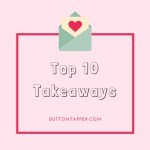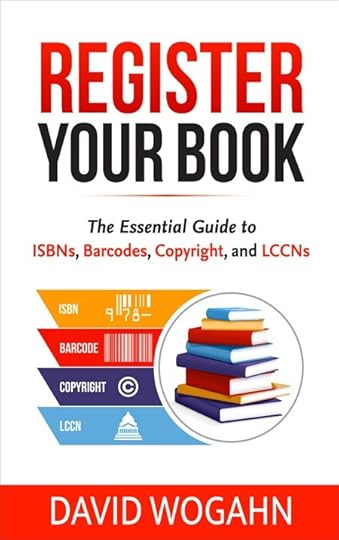Top 10 Takeaways: David Wogahn on Metadata
Last night I attended the monthly meeting of the San Diego Writers and Editors Guild. The guest speaker was David Wogahn, author of Register Your Book: The Essential Guide to ISBNs, Barcodes, Copyright, and LCCNs. He spoke about metadata, which is information about information, in relation to publishing and marketing books, packing in a ton of information in just an hour. Here are my Top 10 Takeaways from his speech:
While we might chalk up metadata as being optional (and, indeed, some of the bits and pieces he spoke about are billed as such by places like Bowker, where you can officially purchase ISBNs), it’s really not. In fact, metadata is what helps readers find your book online – and if over half of all print books are purchased online (and they are!), then you want to be sure your metadata is helping steer readers to your book instead of driving them away.
9 – ISBNs aren’t required…
If you’re publishing an ebook, you don’t need an ISBN. Hooray! But wait a minute…
8 – Unless you’re publishing a print version…
If you plan to publish your book in print, you’ll still need an ISBN. In fact, you’ll need one for every version of your book: audiobook, paperback, hardcover, etc.
7 – Free is great, if you’re on a budget
CreateSpace offers users a free ISBN. This is great if you’re on a budget, and only plan to sell your book on Amazon. Otherwise…
6 – Buy your own ISBNs if you want to be taken seriously
If you’re starting your own publishing house, even if it’s only to promote your own work, the more professional your books look to the consumer, the better. And if your book says that the publisher is “CreateSpace Independent Publishing Platform,” bookstores will not give it a second look. How to fix this? Buy your own ISBN from Bowker, the only officially licensed ISBN dealer in the U.S.
P.S. Although single ISBNs are pricey, you get a discount when you buy in bulk. You can get 10 for $295, or 100 for $575.
5 – Metadata will help you research the competition
Why would you want to research your competition? Two reasons:
To learn how to market your book, and
To understand the audience for your book.
Wogahn noted that successful self-publishers look for audiences first, instead of writing books willy-nilly. So how can you make use of metadata? Find out what categories you can put your book into on Amazon, check out the keywords your competition is using in their titles and subtitles, learn more about how series books are described, figure out how to best price your book, and even find potential reviewers and blurb writers!
4 – Write the back cover copy first
It may sound counterintuitive, but Wogahn recommends writing the back cover copy first. It will help you summarize your book, figure out how to best approach your audience and sell them on the benefits of your book, get your point across quickly, and be crystal clear about what you’re really writing about.
Another bonus? You can use the back cover copy as your Amazon description of the book, too!
3 – Personal metadata should be consistent
When it comes to personal metadata, Wogahn mentioned content topics (what are you talking about in your book and on social media?), Bios and About pages, imagery, and a branded email address. Accurate and consistent metadata is the key to success, so he recommended starting a file for Author Bios and another for Metadata, so you can be sure every piece of information will be the same across all platforms, including social media, publishers, distribution channels, and aggregators. Remember to stay on topic when blogging and using social media, and continue to develop your brand with an email address that reflects your website’s name.
2 – Metadata is forever!
Metadata is forever, so be sure these pieces of information are absolutely decided before you upload any information about your book: Book Title, Subtitle, Publisher Name, and Assigned ISBN.
You should also be sure you own and control each of the following: Domain Names, ISBNs, LCCNs, and Copyrights.
If you’ve got each of those pieces of the puzzle put together, you’re sure to live happily ever after.
1 – Go with the flow
Check out David’s Self-Publishing Flowchart for a timeline of all the different steps you’ll need to take, whether you’re planning to create an ebook or printed volume.
Related Posts
 Top 10 Takeaways: Antoinette Kuritz, Founder of the La Jolla Writer’s Conference
Top 10 Takeaways: Antoinette Kuritz, Founder of the La Jolla Writer’s Conference
 Top 10 reasons to count every word
Top 10 reasons to count every word
 Top 10 Exotic Locations in Literature
Top 10 Exotic Locations in LiteratureThe post Top 10 Takeaways: David Wogahn on Metadata appeared first on Buttontapper Press.




